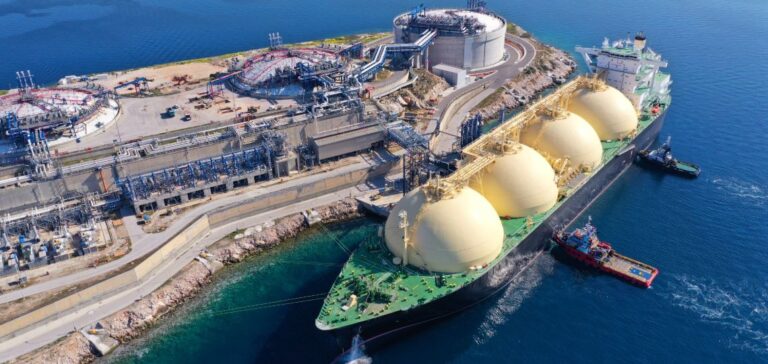Europe enters 2025 with particularly low gas reserves, a worrying sign for the continent’s energy stability. According to the International Energy Agency (IEA), gas stocks now cover only 30% of the European Union’s winter consumption. On March 16, 2025, reserves stood at just 34%, compared to 60% at the same time the previous year. In France, the figure has dropped to 21%. Several factors explain this situation: a colder-than-expected winter, reduced renewable energy production in November 2024, and the cessation of Russian gas transit through Ukraine at the end of 2024, although this source accounted for only 5% of Europe’s gas supply. As a result, operators preferred to draw from reserves rather than rely on imports, which decreased by 6% in 2024.
Energy price tensions
This gas shortage situation is placing additional pressure on energy prices in Europe. In 2025, gas prices are expected to reach €45 per megawatt-hour (MWh), nearly twice as much as before the 2022 energy crisis. This price increase could harm the competitiveness of European industry, which is already facing high energy costs compared to other regions. According to the IEA, prices for industrial consumers in Europe are on average 30% higher than in China and five times higher than in the United States. Liquefied natural gas (LNG), used to offset the loss of Russian gas, is becoming increasingly sought after, exacerbating the situation in the global market, where Asia and Europe compete for the same volumes.
An increasingly tight LNG market
Since 2022, Europe has turned to LNG to replace Russian gas, the supply of which has been significantly reduced. In 2024, LNG supplied 34% of Europe’s gas demand, down from 40% in 2023. The IEA highlights that LNG imports will need to increase significantly in the coming years to avoid a supply crisis, especially before the next winter. However, LNG is also in high demand in Asia, complicating the situation for Europe, which will have to compete with other major economies to secure its stocks. Such global competition is likely to keep upward pressure on gas prices in the coming months.
A tense situation until 2026
Although global LNG production is expected to increase by 5% in 2025, according to the IEA, this growth will not be enough to compensate for the loss of Russian supply. The gas market will therefore remain tight in 2025, with high prices. However, an improvement is expected after 2026, with the commissioning of new LNG capacities, particularly from the United States and Qatar. Angelina Valavina, Director of Natural Resources and Commodities at Fitch Ratings, anticipates that these additional volumes will put downward pressure on prices, leading to a gradual market easing.






















